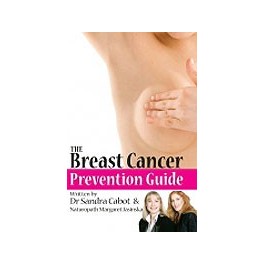 Maximize
Maximize - Remove this product from my favorite's list.
- Add this product to my list of favorites.
- Send to a friend
The Breast Cancer Prevention Guide by Dr Sandra Cabot
Did you know each day approximately 36 Australian women are diagnosed with breast cancer?























